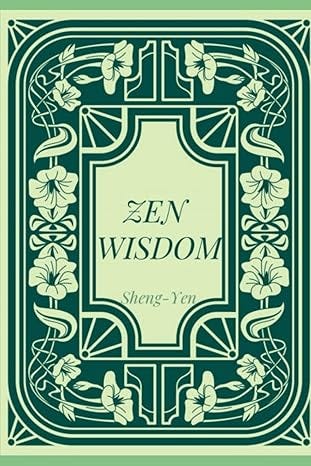The Wisdom of Raising a Child Without Labels: A Radical Shift in Education

“You’re amazing!”
“If you keep doing this, I’ll get angry!”
These are phrases heard in countless homes — seemingly harmless, even loving. But psychological research shows that both praise and criticism are forms of top-down evaluation. They function like invisible ropes, binding children to parental expectations and distancing them from their authentic self.
Alfred Adler, the Austrian psychologist, proposed a transformative shift: neither praise nor criticism, but horizontal relationships — rooted in equality, mutual respect, and a recognition of the child’s innate potential. This does not imply permissiveness, but the use of deeper wisdom to awaken the child’s internal strength.
Why Praise and Criticism Fail
1. Praise is a Subtle Form of Control
Praise often comes from a position of power. When a parent says, “You’re so smart,” the child may internalize the idea that their worth depends on external approval. Over time, they may begin to chase validation rather than authenticity. When praise disappears, self-doubt rushes in.
As Buddhist wisdom reminds us:
“If one sees all forms as no form, then one sees the Tathāgata.”
When children are constantly judged through labels and achievements, they lose sight of their true essence — the formless, complete nature of being.
2. Criticism Breeds Shame and Fear
Harsh or constant criticism activates the brain’s threat response, resulting in either rebellion or emotional withdrawal. Studies show that a large majority of young adults who were raised under critical parenting report lower self-confidence and greater anxiety.
Rather than fostering problem-solving, criticism teaches children how to avoid punishment. It narrows their focus to fear, not growth.
3. Vertical Power Structures Harm Development
Both praise and criticism reflect a hierarchy: the adult above, the child below. In this dynamic, children either conform or resist, but rarely develop a strong, self-determined personality.
The Horizontal Relationship: A New Way of Seeing
In Adlerian psychology, a healthy relationship is horizontal — not identical, but equal in dignity. Parents and children are seen as partners walking side by side on life’s path.
This approach is guided by three principles:
- Non-evaluation: Avoid labeling behavior as good or bad.
- Non-manipulation: Let children take responsibility for their own life tasks.
- Affirmation of being: Acknowledge the child’s worth as inherent, not conditional.
In Buddhist terms:
“All sentient beings possess Buddha-nature.”
The role of the educator is not to mold a perfect child, but to nurture the wholeness that already exists.
How to Apply This in Daily Life
1. Encourage by describing effort, not judging the outcome
❌ “You got full marks — you’re a genius!”
✅ “I saw how you studied each night — your dedication really inspired me.”
This shift helps children find meaning in their efforts, not just their results.
2. Replace praise with gratitude
When a child helps around the house:
❌ “You’re such a good boy!”
✅ “Thank you for helping clean up — it made my day easier.”
Gratitude creates mutual respect, strengthening the child’s sense of contribution and connection.
3. Address actions, not the child’s identity
When a child makes a mistake:
❌ “Why are you always so careless?”
✅ “It looks like there was a mix-up in this part — would you like to work through it together?”
This invites collaboration instead of defensiveness.
Real-Life Scenarios
Scenario 1: A child loses a competition
- Vertical approach: “You have to win next time!”
- Horizontal approach: “I noticed how focused and present you were — that’s what really matters. Want to talk about how it felt?”
Scenario 2: A child delays homework
- Vertical approach: “If you keep dragging your feet, no more games!”
- Horizontal approach: “Homework is your responsibility. I can help you get started if you’re feeling stuck.”
This affirms both autonomy and support.
The True Goal: A Self-Determined Soul
Neuroscience confirms that when children experience autonomy, the prefrontal cortex — responsible for decision-making and planning — is activated. This fosters intrinsic motivation and resilience.
Horizontal relationships nurture the child’s core psychological needs:
- Autonomy: “My choices matter.”
- Competence: “I can handle challenges.”
- Belonging: “I am accepted, just as I am.”
As the Buddhist scriptures say:
“There is only one path — the path to awakening.”
So too, the purpose of education is not to meet external standards, but to awaken the inner light that already exists within each child.
✨I share more insights on mindfulness, personal growth, spiritual awakening, meditation, Zen, and Eastern philosophy—may these words be a gentle light, bringing you greater peace and happiness.
The Courage to Let Go of Judgment
As The Courage to Be Disliked writes:
“The aim of education is not to raise perfect children, but to raise children who can face life with courage.”
When we release the measuring stick of judgment, and instead offer presence, trust, and respect, our children bloom — not into obedient versions of our ideals, but into resilient, radiant, and self-aware beings.
So begin with this simple truth:
“No matter what, you are already worthy of love.”
This may be the most powerful message a child ever receives.
Today’s Book Recommendation: Zen Meditation Wisdom
This book contains nearly 300 dialogues between teachers and students, providing detailed explanations of all the issues that arise in meditation. This includes the attitudes and methods of meditation: koan meditation, huatou meditation, silent illumination meditation, and breath meditation. It addresses potential problems and situations that may arise during meditation, as well as how to discern authentic teachers in the practice. It also covers topics such as self and non-self, dependent origination and karma, precepts and karmic relationships, consciousness and the five aggregates, Zen and dreams, Chinese Zen and Japanese Zen, Buddhism and death, Buddhism and art, Buddhism and education, Buddhism and family, abortion and death, euthanasia and suicide, as well as Buddhism’s view on materialism. Check it out








